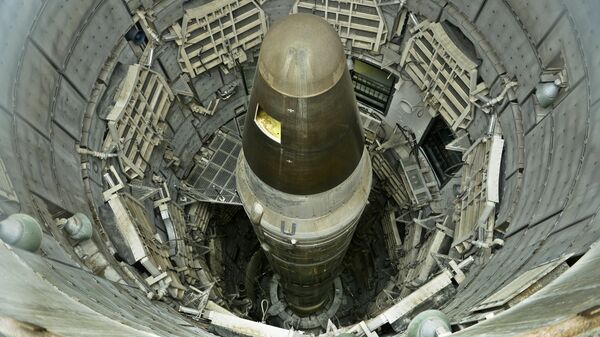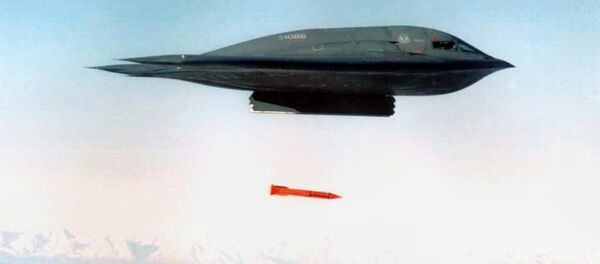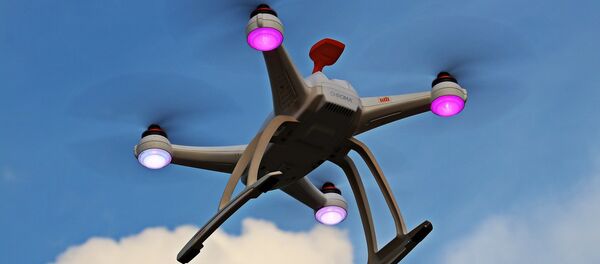"Another document that raises our concerns is the INF Treaty. We are accused of violating the Treaty by allegedly possessing a certain 9M729 missile that violates the accord’s provisions. However, we do not see any clear facts or arguments that could lead to conclusions of violations," Antonov told students at the Middlebury Institute of International Studies at Monterey, California.
Antonov noted that the most recent accusations against Russia in this regard were lodged during the NATO Defense Ministers Summit in Brussels earlier this month.
Antonov emphasized that Russia awaits "clear evidence" and continues to deny any groundless accusations.
"It is noteworthy that in this issue we do not even hear the ‘highly likely’ phrase, which is clearly loved by certain Western colleagues, but rather direct statements that the Russians ‘violate everything,’" Antonov said.
Russia suspects the statements by the US military on the need for intermediate- and short-range missiles to deter China are an excuse for the United States to leave the INF Treaty, Antonov said.
READ MORE: New Nuclear Triad: A Look Into the Future of Russia's Strategic Defenses
"Recently, we hear more and again statements from the US military command that the country requires intermediate- and short-range missiles to deter China," Antonov said. "Could it be that the United States is looking for a pretext to abandon the INF Treaty, while, obviously, blaming Russia for it?"
"The United States has deployed ‘Aegis Ashore’ missile defense systems in its base in Romania and plans to do the same in Poland. Vertical launchers similar to the MK-41 all-purpose sea launchers are part of these systems," Antonov said. "They are intended for offensive purposes, including use of sea-based intermediate-range Tomahawk cruise missiles."
The ambassador pointed out that nobody has so far been willing to explain anything regarding these developments to Moscow while the weapon systems are being deployed in direct proximity to Russian borders.
"If we were to deploy such missiles near the US territory, wouldn’t it be taken in the United States as a direct threat to its national security?" he said. Antonov also stressed that over the past two decades the United States has been testing target missiles that are similar to intermediate- and short-range ground-launched ballistic missiles.
"No explanations have been given to us. How should we respond then?" Antonov asked. In addition, the United States has increased production and use of assault drones and Russia believes they fall under the purview of the INF treaty, which also covers ground-launched cruise missiles, he noted.
"We consider it inappropriate when only American ‘concerns’ regarding Russian activities are in the spotlight of the international community, while our complaints seem not to exist at all. The goal is not to blame someone for something and simply draw a line, but rather to find a solution to the problem," the ambassador said.
The 1987 INF Treaty prohibits the development, deployment and testing of ground-launched ballistic or cruise missiles with ranges between 300 and 3,400 miles. The United States and Russia have repeatedly accused each other of violating the accord.
WATCH: 'Doomsday Machine': Russia's New Weapon Reportedly Gets Nuclear Warhead
During a press conference earlier in October, US Envoy to NATO Kay Bailey Hutchison said the United States could employ countermeasures to "take out" missiles that Russia is allegedly developing. Hutchison later clarified her statement, saying she was not talking about preemptively striking Russia, but about the need for Moscow to return to INF Treaty compliance or otherwise the United States would need to match its capabilities to protect its and NATO’s interests.
NATO Secretary General Jens Stoltenberg said the United States has shared information with NATO that Moscow started deploying ground-based cruise missiles 9M729 (NATO designation SSC-8) allegedly in violation of the INF treaty.
In May, US President Donald Trump issued a memorandum ordering State Secretary Mike Pompeo to propose sanctions on Russia in response to alleged violations of the INF Treaty. Kremlin spokesman Dmitry Peskov, commenting on the matter, said that Russia had never violated the INF Treaty, it adheres to its obligations and intends to continue doing so.
READ MORE: Putin: Russia Develops Nuclear Industry in Line With Nonproliferation Treaty








